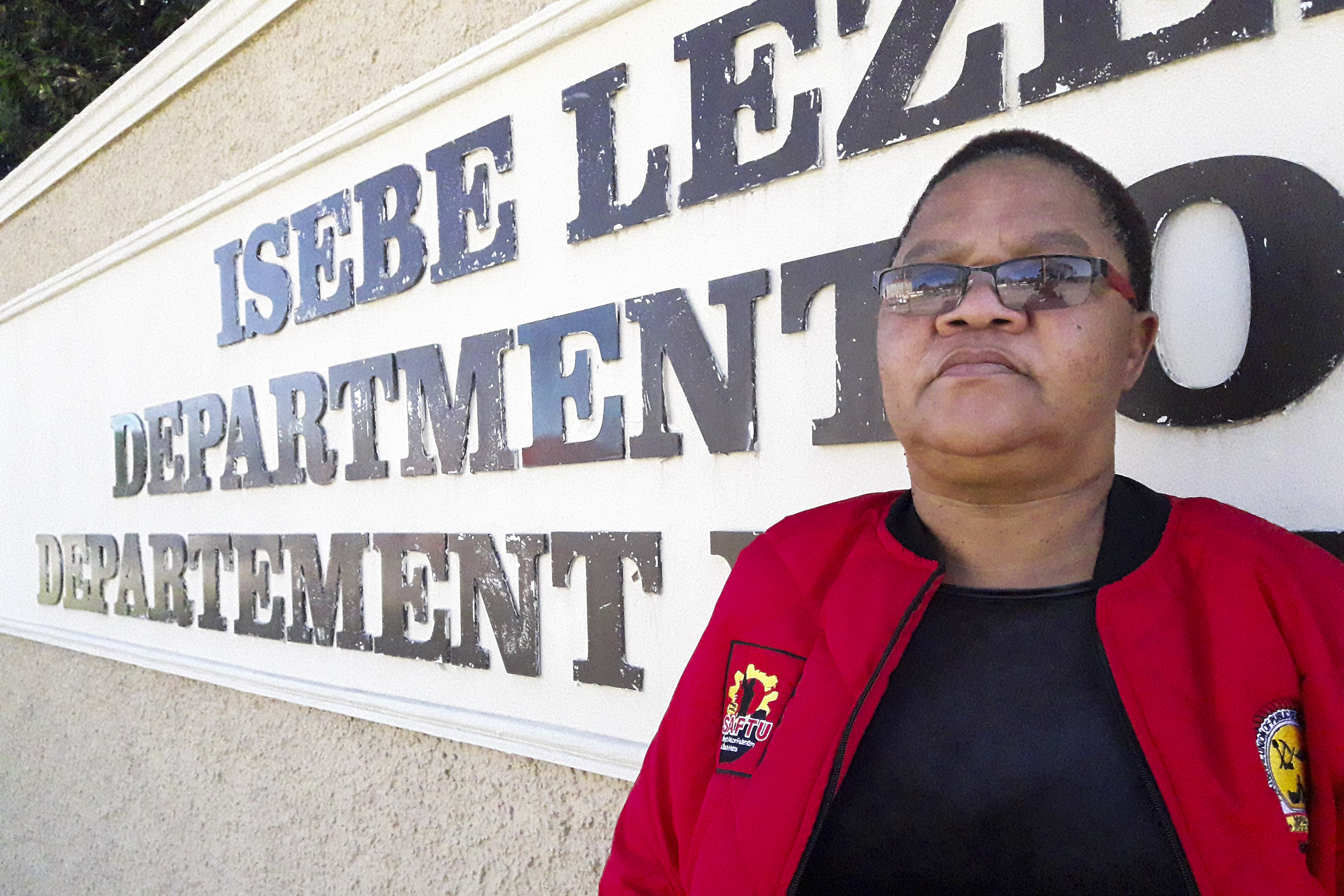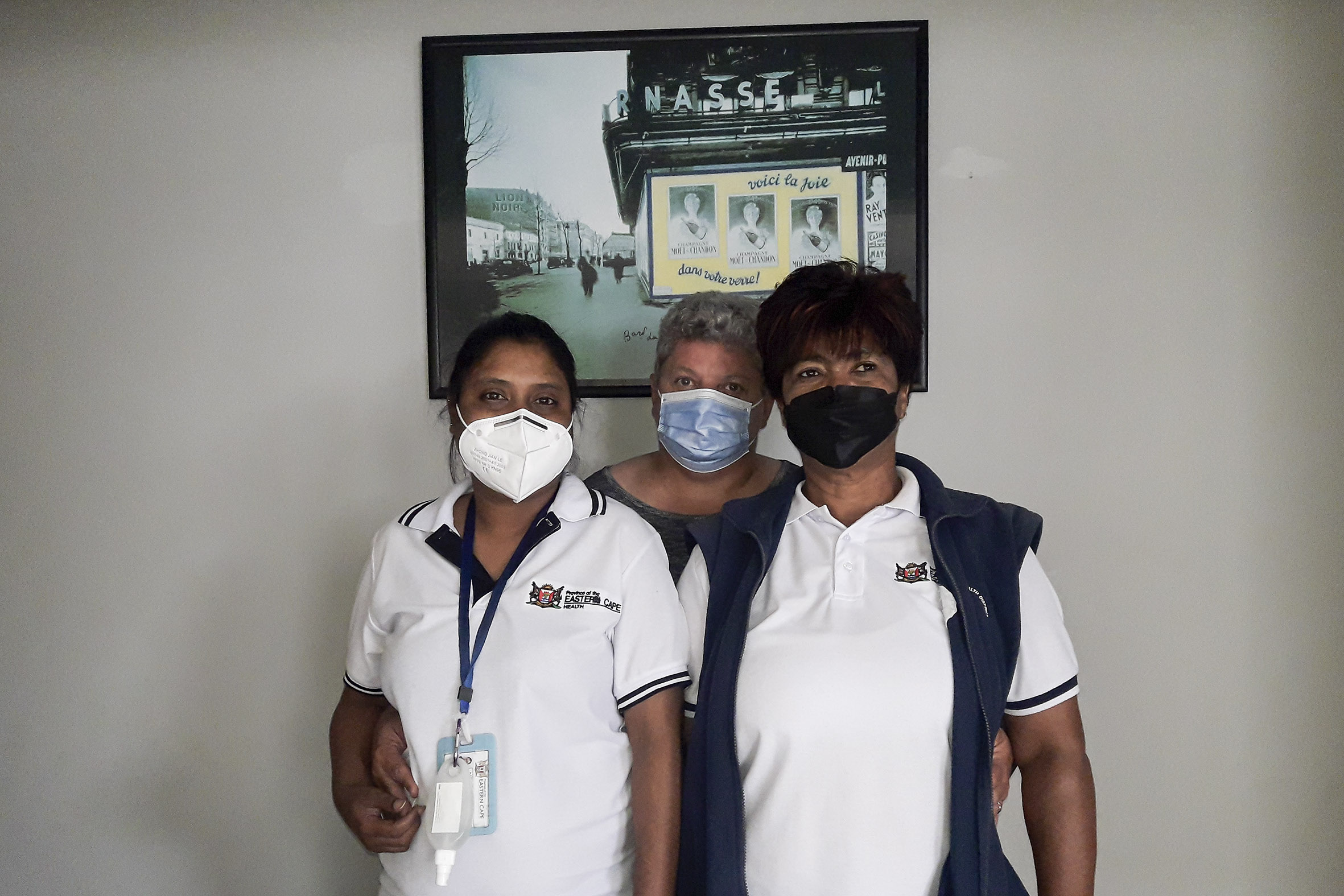Eastern Cape healthcare workers stretched too far
In an apparent bid to save money, the province terminated the contracts of thousands of workers and refused to fill vacant posts, leaving clinics woefully understaffed.
Author:
26 May 2022

Healthcare workers in the Eastern Cape are sceptical that the department will meet the promises it made to end their month-long strike in which they shut down more than 17 clinics in Gqeberha between April and May. They downed tools over the government’s failure to fill vacant posts, which places a heavier burden on those left to care for the people of Eastern Cape’s capital.
The workers locked several clinics and placed barricades over entrances in response to the provincial department of health ending 2 374 healthcare workers’ contracts in January. Winky Mngqibisa, a nurse working at the Motherwell Community Health Centre, says the situation at the clinic is dreadful, with an understaffed maternity ward putting pressure on healthcare workers.
“We have been giving in to the department for so long on the issue of shortage of staff. This year when we asked them to fill in vacant posts, they told us that there is no money. Even in the last financial year they said that they had no money … when we did our research we found … that the government is purposely not employing people to save money,” says Mngqibisa.
Related article:
Nomonde Fanele, the chairperson of the National Union of Public Services and Allied Workers (Nupsaw), says that even though the workers returned on 9 May, the union was “not satisfied” with the department as it had not met many of the workers’ demands. These demands include calls to address staff and medication shortages in clinics, employ contractual health workers permanently, upgrade clinics to meet Covid-19 regulations and place the Eastern Cape Department of Health under administration.
“The employment promises made by the member of the executive council (MEC) will take time … We’ll see how the process is being done because the department claims [it has] no money,” says Fanele.
The department responded by filing an interdict with the labour court against the unions involved in the strike, which were Nupsaw, the National Education, Health and Allied Workers’ Union, the Young Nurses Indaba Trade Union, the Public Servants Association of South Africa, the Public and Allied Workers Union of South Africa, and the Health and Other Service Personnel Trade Union of South Africa. The interdict was granted on 3 May for what the department called an “illegal” strike.

“The interdict is about protecting our facilities. It cannot be that when people decide to withdraw their services there is chaos and anarchy. We cannot allow that,” says the MEC of health in Eastern Cape Nomakhosazana Meth.
The department’s interdict against the unions includes the participation in an unprotected strike, inciting threats and intimidation, unlawfully blocking or obstructing access to health facilities and interference with the proper functioning of health facilities. Unions are expected to appear in court in June, when a decision will be made as to whether the interdict will be permanent.
When the unions and the MEC met, the department promised to appoint five healthcare workers at the Motherwell clinic and 20 additional workers, who would be placed in facilities across the metro. There was also a promise to upgrade facilities, conduct maintenance on a number of clinics and re-employ workers employed under the global fund, including paying back-pay for those who continued to work without receiving money in April.
Terminated contracts
One of the workers who had their contract terminated in January, Priashnee Rensburg, is doubtful these promises will be met. “This government is so corrupt, we can only hope for the best. I had a bargaining council case against them where we found that the government was at fault even though the findings of the commissioner were biased and unfair during the day of arbitration. Our lawyers were so appalled by this. With these outcomes from the meeting with unions at least people can now have a little bit of hope,” says Rensburg.
Rensburg says the department overlooked the vital work community health workers have been doing since the beginning of the Covid-19 pandemic, adding that they had been working under “horrifying conditions” before being dismissed.

Rensburg was part of the 2 949 healthcare workers assigned to fight the surge in Covid-19 infections in the Nelson Mandela Bay metro. In addition to nurses and medical doctors, the department also employed administration workers, emergency care and allied workers (including those in health promotion and dieticians), general workers, IT specialists, pharmacists and social workers. The department only employed 575 of those workers full time in December last year after two years of contractual renewals. This left 2 374 workers, including Rensburg, out of work by January.
“Some of us did multiple jobs, you would be a nurse, a clerk, a cleaner and a pharmacist,” says Mngqibisa. “Interviews were held and the department had promised 20 vaccination workers but we asked them to not only focus on vaccinations but clinical work as well.”

